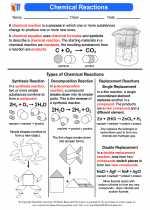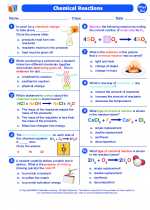Nucleation: Explained
Nucleation is the process by which nuclei, or tiny particles, form and grow to create a new phase or structure, such as a solid, liquid, or gas. This process is important in various natural and industrial phenomena, including the formation of clouds, the solidification of metals, and the crystallization of substances.
Types of Nucleation
There are two main types of nucleation: homogeneous nucleation and heterogeneous nucleation.
Homogeneous Nucleation
In homogeneous nucleation, the nuclei form spontaneously within a uniform medium, such as a liquid or gas, without the presence of any foreign particles or surfaces. This type of nucleation is often more difficult to initiate due to the absence of nucleation sites, but it can occur under the right conditions of temperature and pressure.
Heterogeneous Nucleation
Heterogeneous nucleation involves the formation of nuclei on the surface of foreign particles or impurities within the medium. These particles or surfaces provide nucleation sites that lower the energy barrier for nucleation to occur, making this type of nucleation more common and easier to initiate in various processes.
Factors Affecting Nucleation
Several factors can influence the nucleation process, including temperature, pressure, concentration of the substance, and the presence of nucleation sites or impurities.
Applications of Nucleation
Nucleation plays a crucial role in many natural and industrial processes, such as the formation of snowflakes, the production of semiconductors, and the crystallization of pharmaceutical compounds. Understanding nucleation is essential for controlling and optimizing these processes.
Study Guide
- Define nucleation and its significance in natural and industrial processes.
- Explain the difference between homogeneous and heterogeneous nucleation.
- Discuss the factors that can influence the nucleation process.
- Provide examples of natural and industrial phenomena where nucleation is important.
◂Science Worksheets and Study Guides Eighth Grade. Chemical reactions

 Activity Lesson
Activity Lesson
 Worksheet/Answer key
Worksheet/Answer key
 Worksheet/Answer key
Worksheet/Answer key
 Worksheet/Answer key
Worksheet/Answer key
 Worksheet/Answer key
Worksheet/Answer key
 Vocabulary/Answer key
Vocabulary/Answer key
 Vocabulary/Answer key
Vocabulary/Answer key
